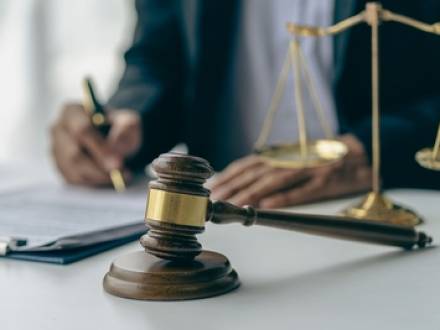2591 Dallas Parkway, Suite 207A, Frisco, TX 75034
Free Consultations
469-333-3333
 |
DO I HAVE TO GO TO TRIAL IN TEXAS? |
How to Fight a Texas Protective Order
 In Texas, a protective order, also known as a restraining order, is a court order aimed at preventing contact between two people, typically in situations involving alleged threats, harassment, or domestic violence. While protective orders can serve to keep people safe, they are fairly easy to get approved and many people use them as a tool to punish someone else. If someone has filed a protective order against you in Texas, it is important to understand your rights and take action to defend yourself. Do not do this alone – one of our experienced, aggressive Collin County, TX criminal defense attorneys can help.
In Texas, a protective order, also known as a restraining order, is a court order aimed at preventing contact between two people, typically in situations involving alleged threats, harassment, or domestic violence. While protective orders can serve to keep people safe, they are fairly easy to get approved and many people use them as a tool to punish someone else. If someone has filed a protective order against you in Texas, it is important to understand your rights and take action to defend yourself. Do not do this alone – one of our experienced, aggressive Collin County, TX criminal defense attorneys can help.
Protective Orders in Texas
A protective order places restrictions on someone, often prohibiting them from contacting the petitioner (the person who applied for the protective order), going near their residence or workplace, or having guns. Violating a protective order can lead to serious consequences, including criminal charges and potential jail time. Protective orders can last anywhere from 20 days (for temporary orders) to up to two years, or even longer in extreme cases.
If you believe the protective order filed against you is unjust, it is possible to fight it in court. However, you must act quickly, as the timeline to respond is short, particularly for temporary orders.
Understand What the Protective Order Means for You
The first thing you need to do is carefully review the terms of the protective order. Make sure you understand the claims made against you and what exactly the protective order says you cannot do. Violating the order while preparing your defense can hurt your case, so you need to comply with all conditions while you wait for the matter to be resolved.
Attend the Hearing
When someone files for a protective order, the court will schedule a hearing to determine whether to grant a final order. While you are not legally required to go, not going to the hearing is a terrible idea. Failing to show up allows the petitioner to present their perspective uncontested, making it likely that the order will be granted.
If you do go to the hearing, you will have the opportunity to present evidence, call witnesses, and challenge the petitioner’s claims.
Gather as Much Evidence as Possible
To successfully fight a protective order, you need strong evidence to disprove the allegations. This may include:
-
Text messages, emails, or social media posts that contradict the petitioner’s claims.
-
Witness testimony from people who can verify your version of events.
-
Video or audio recordings, if legally obtained, that show you are innocent.
Hire a Lawyer
Defending yourself against a protective order can be legally and emotionally complex. You may be understandably angry, which can lead you to take actions that can ultimately defeat your own case.
An experienced Texas criminal defense attorney can guide you through the process, help you collect evidence to prove your innocence, and argue a compelling case on your behalf. Your attorney can also identify procedural errors, such as improper service of the protective order, that may result in dismissal.
Why You Should Fight a Protective Order
A protective order can significantly impact your life, even if it is temporary. It can affect your ability to own guns, keep you from going into your own home and seeing your own kids, and give you a bad reputation. Additionally, if the order is related to a family law matter, such as child custody, it may influence the outcome of that case.
Call Our Team of Collin County, TX Criminal Defense Attorneys Now
If you are being subjected to a protective order, you do not need to just lie down and take it. You can fight the accusations against you, and for the sake of your reputation, your future, and your relationship with your children, it is important that you do so. Check our case results and then call Law Offices of Biederman & Burleson P.L.L.C. at 469-333-3333 to schedule a free consultation with one of our Fairview, TX criminal defense attorneys and learn more about your options for fighting a protective order.


 600+ DWI & CRIMINAL DEFENSE TRIALS
600+ DWI & CRIMINAL DEFENSE TRIALS
















